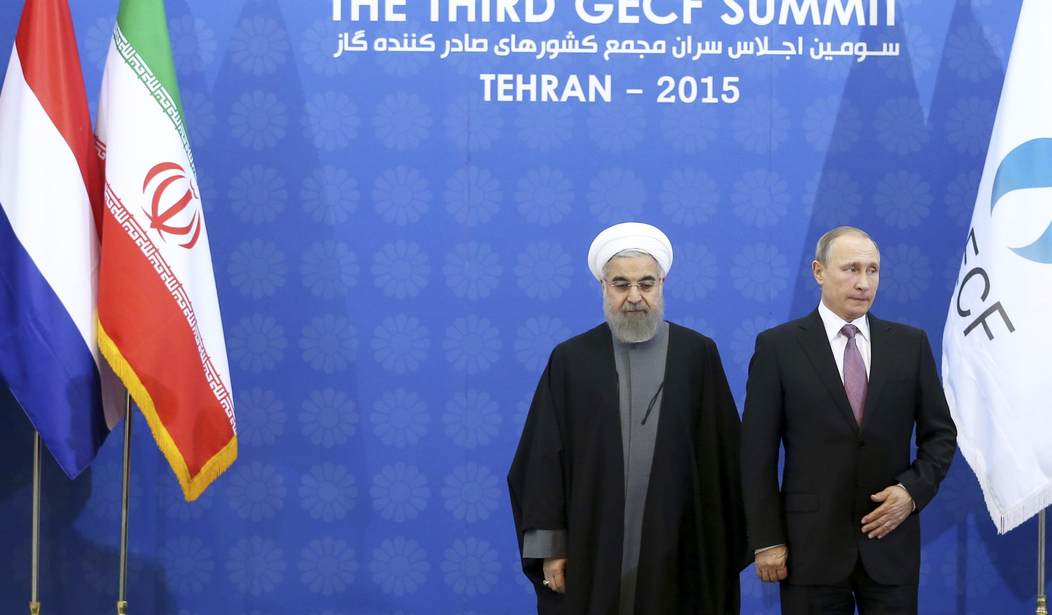WASHINGTON — Senators are using the Iran Nuclear Review Agreement Act that compelled President Obama to bring the nuke deal before Congress for a vote as the blueprint for legislation that would require President Trump to get congressional clearance before changing the sanctions regime against Russia.
The Iran deal review bill passed 98-1 in May 2015, with Sen. Tom Cotton (R-Ark.) the only dissenter as he thought the P5+1 agreement should have been treated as a treaty.
Senate Majority Leader Chuck Schumer (D-N.Y.) and Senate Foreign Relations Committee Ranking Member Ben Cardin (D-Md.) announced Sunday that they will introduce this week legislation to require congressional approval on White House changes to Russia sanctions.
“Every member of Congress, Democrat and Republican, should have a say over lifting sanctions when it comes to our adversaries – especially when it’s a response to interfering in our democratic institutions,” Schumer said. “Just like every member of the Senate voted to subject any changes to our Iran sanctions regime in 2015, I hope and urge President Trump and Republicans in Congress to both support this bill and increased sanctions on Russia, and oppose any attempts to roll back existing sanctions.”
Earlier this month, Cardin introduced a bipartisan bill to introduced new sanctions on Russia over their cyberintrusions as determined by the intelligence community during the election cycle. GOP co-sponsors include Sens. John McCain (R-Ariz.), Lindsey Graham (R-S.C.), Marco Rubio (R-Fla.), Ben Sasse (R-Neb.) and Rob Portman (R-Ohio).
The legislation mandates sanctions on those involved with or supporting Russian hacking activities, including any transactions with Russian intelligence or the defense sector. It also would impose new energy sanctions, visa bans and asset freezes related to Russia’s destabilizing activities in Ukraine and Syria as well as general human rights violations. The bill attempts to counter Russia’s influence campaign in Europe and Eurasia with a variety of measures, including programs to counter “fake news.”
Graham told CBS on Sunday that “if there were a vote tomorrow on additional sanctions against Russia, it would get over 75 votes in the Senate.”
“I don’t believed they change the outcome, but Putin is trying to break the back of democracies all over the world. My hope is that his team, his national security team, which I like a lot, President Trump’s team, will convince him that, if you forgive Putin and forget about what he did, that screams weakness to Putin,” Graham said.
“Beware of the teddy bear, President Trump. Putin will change his tone, he will be cajoling, but he still has the same interests at heart. If we don’t punish Russia for what he did in our election, then Iran and a China could come into the next election. People are watching us. Don’t be weak when it comes to Russia. It didn’t work on Obama’s watch and it won’t work on your watch.”
Graham acknowledged that Russia sanctions “will be the biggest conflict potentially between the Congress and the president.”
During confirmation hearings, Trump’s nominees generally said they support existing sanctions but demurred on support for future, additional punitive measures.
“If Congress passed a bill imposing mandatory visa bans and asset freeze sanctions on persons who engage in significant activities undermining the cyber security of public or private infrastructure and Democratic institutions in the United States, would you advise the president to sign it?” Rubio asked Secretary of State nominee Rex Tillerson at his hearing before the Foreign Relations Committee.
“I would certainly want to examine all the corners, all four corners of that,” Tillerson replied, adding wariness of measures that give “the executive branch no latitudes or flexibility in dealing with the broad array of cyber threats.”
Gov. Nikki Haley, Trump’s pick for the next UN ambassador, told the committee last week that “Russia has to have positive actions before we lift any sanctions on Russia.”
Cardin said Sunday that the new bill to require congressional approval of sanctions changes underscores that “we need more, not less, sanctions, which is why I worked with Senator McCain and my bipartisan colleagues to fashion a series of additional steps the president can take.”
“President Trump must understand that sanctions against Russia demonstrate our will to hold them accountable for their aggression against the United States and other nations around the world,” Cardin said.









Join the conversation as a VIP Member